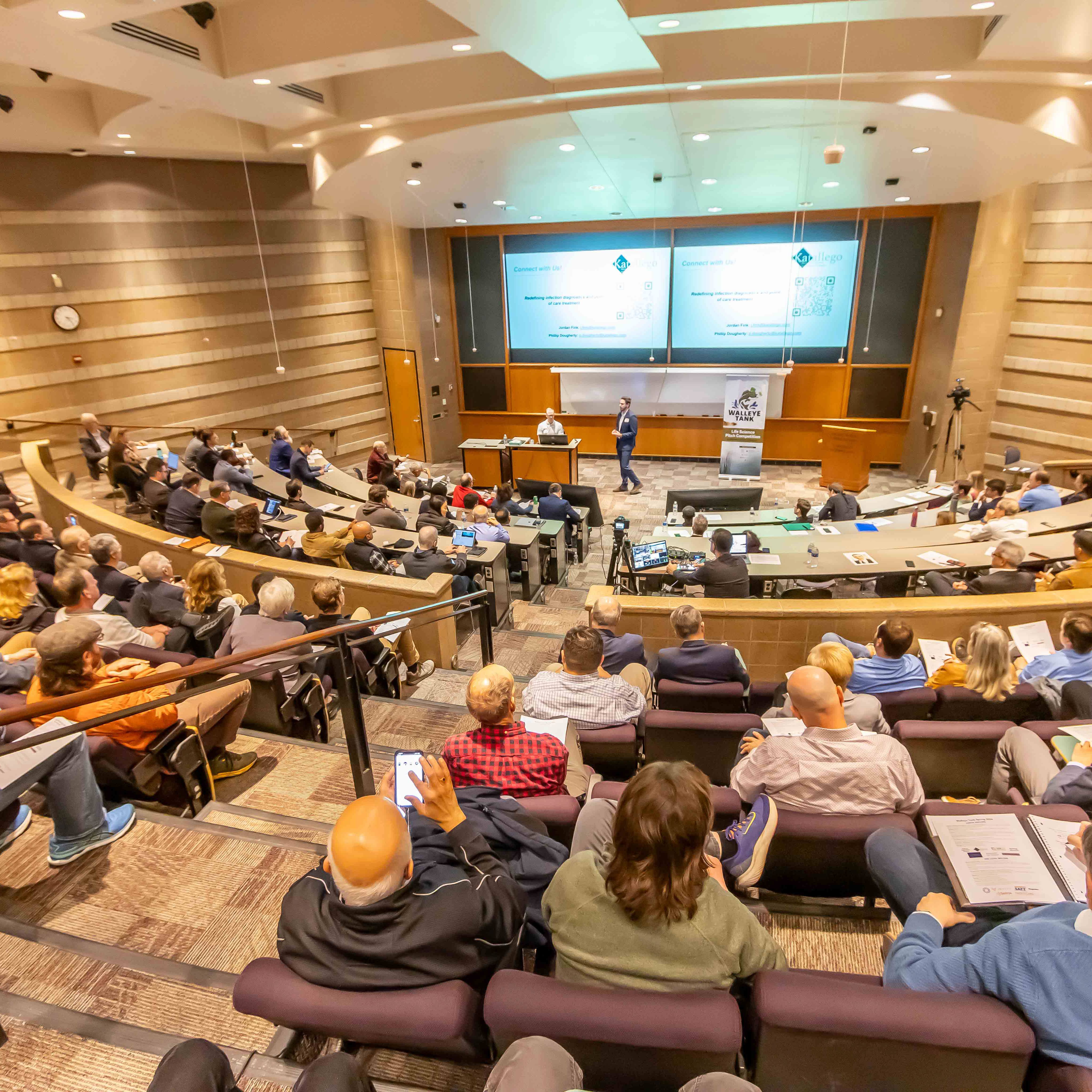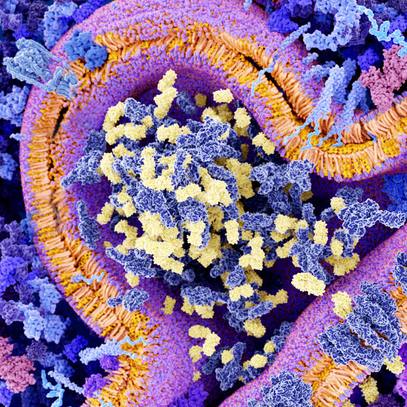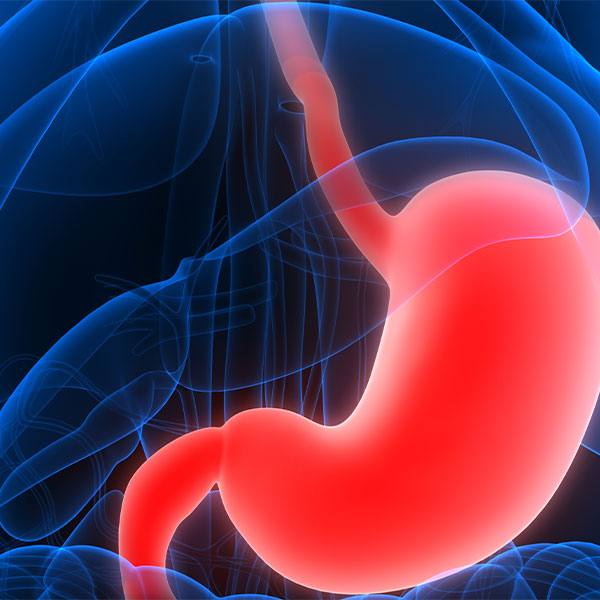-
Medical Innovation
Meet Moein Enayati, Ph.D., expertly employing artificial intelligence to improve health care
Vast quantities of data and information exist within health care. Moein Enayati, Ph.D., is a research associate in health care systems engineering in the Mayo Clinic Robert D. and Patricia E. Kern Center for the Science of Health Care Delivery. With his research, Dr. Enayati aims to make sense of such health-related data.
“I came to Mayo in 2019, to lead machine learning efforts in an AHRQ-funded research project addressing diagnostic errors in the Emergency Department,” says Dr. Enayati. “Since then, I have been able to pursue my research interests in machine learning, deep learning and data analytics in collaboration with several clinical departments.”
Becoming a machine learning expert
Dr. Enayati’s interest in mathematics and computers started early. He was selected by Iran’s National Organization for the Development of Exceptional Talents to attend a specially designated high school, where he was able to explore algebra, discrete mathematics and algorithms. During high school, he got a taste of competition on the global scale when he was invited to compete to represent Iran at the International Informatics Olympiad.
Family conversations often revolved around engineering, mathematics and emerging technologies.
“Both my older brothers had studied electrical engineering, and they would talk a lot about all the new technologies they saw at the university, and the difficult software languages they learned such as assembly or Fortran,” he says.
“At the time, computer science was a new field that everyone was talking about,” continues Dr. Enayati. “Thankfully by the time I got to the university, we had C and Java making the developers’ lives much easier — and opening new career options for people.”
“All you needed was a computer and some good thinking,” says Dr. Enayati with a grin. “And I wanted to explore that future.”
Dr. Enayati obtained a bachelor's degree in Computer Science followed by a master’s degree in Industrial and Systems Engineering from Tehran Polytechnic, also known as the Amirkabir University of Technology, in Tehran, Iran.
He didn’t spend all his time with computers — in school he often was the planner for social activities like sport competitions and movie review sessions. He rarely strayed far from his first love though. And he clearly enjoys exploring all sorts of ideas made possible by artificial intelligence.
“I was among the founding members of our university’s branch of the Association for Computing Machinery,” says Dr. Enayati.
“When I was an undergrad, my simulated robot team made it to the semi-finals in Japan’s 2002 Robocup World Championship,” he continues, “and my final project was an early adoption of Natural Language Generation — a subcategory of Natural Language Processing — techniques to generate synthetic music.”
He had read about Natural Language Processing, or NLP, in a magazine. Then he spent some time playing with a chat-bot named A.L.I.C.E. (Artificial Linguistic Internet Computer Entity). “This was an amazing technology at the time and a point of inspiration for me,” he says.
About this time, Dr. Enayati was also learning how to play a traditional Iranian musical instrument, the setar. Learning about Natural Language Generation inspired him to consider how computers could be used to generate musical notes instead of text. It had been explored a few times before, but it was a new enough — especially for Persian piano — that his professors allowed him to pursue this line of research.
“I suppose my graduate work might sound a little less 'fun',” says Dr. Enayati. “My master's thesis was on data mining and web scraping.”
“Twenty years ago, this was a completely different science. You had to go to different search engines, read through a bunch of random content to get to the exact point you want,” he says. “And web scraping was an automated way to monitor specific content over the internet. You could monitor for stock prices or new publications on a specific topic. You could search for and load specific piece of information without the need to download the entire page — which was expensive and time consuming.”
As he continued his education, and entered the business world, he saw computer capabilities metamorphose beyond anything he could have imagined as a teenager who liked figuring things out.
“Consider the changes that computers have made in our lives — at first it was all theory, and the imagination and hopes of computer scientists in front of a huge stack of unknown problems.” He chuckles and continues, “There was a time not long ago when concepts such as electronic mail — email — sounded fancy, and there was no smartness in the cell phones.”
“Coupled with a huge investment from society,” computer scientists, data analysts and a host of other experts like Dr. Enayati have sought to identify needs and develop improved solutions for each one. Now there are machines that are able to learn, teach themselves and reach answers undetectable to the human eye and faster and more accurately than any human being.
Machine learning, multidisciplinary collaboration
Dr. Enayati came to the U.S. to pursue a Ph.D. in Electrical Engineering and Computer Science at the University of Missouri in Columbia. During this time, he developed an appreciation for multidisciplinary research in pursuit of better outcomes and experiences for patients. He collaborated with scientists, nurses and physicians to develop and improve sensors and algorithms for non-invasive monitoring of cardio-respiratory signals.
Now at Mayo Clinic, Dr. Enayati applies his artificial intelligence expertise to build tools that dig deep into the big data of health care. He and his collaborators look for ways to extract, analyze and apply knowledge gained from patient’s clinical information.
“Using artificial intelligence and machine learning can shed light on hidden information in the health records, clinical narratives or medical images,” says Dr. Enayati. “We want to help providers reach faster and more accurate clinical decisions.”
“I believe in the importance of our interdisciplinary research and the fact that our research is directly aims at addressing real-world issues in the health care systems. I am very passionate about multimodal machine learning and data fusion technologies that can open new venues in addressing some of the old problems.
“Such tools can process big data repositories in a fraction of the time of more traditional research methods and reassure clinicians about their everyday life-saving decisions,” he continues. “State-of-the-art algorithms can also help us investigate different performance metrics in a health system or hospital to identify potential risk factors affecting patients’ health or satisfaction, as well as opportunities to reduce administrative burden for health care professionals.”
Building AI solutions and relationships
Since Dr. Enayati joined the Mayo Clinic Kern Center for the Science of Health Care Delivery, demand for his expertise has expanded. Beyond supporting the initial AHRQ-funded project on the diagnostic errors, he led several exploratory projects in the Emergency Department using real-time location systems to improve safety and efficiency of patient care.
Dr. Enayati now has a well-established collaboration with Cardiovascular Medicine on different AI approaches for early identification of the rare heart disease — hypertrophic cardiomyopathy. The team is led by Adelaide Arruda-Olson, M.D., Ph.D., a cardiologist at Mayo Clinic in Rochester, Minnesota, in close collaboration with the Echocardiography (Echo) Core Laboratory and other Mayo experts in hypertrophic cardiomyopathy. Results of this research have been published and presented in multiple journal and conferences, with Dr. Enayati's expertise evident in the design and optimization of the AI tools and processes critical to the team's research.
Additionally, Dr. Enayati was recently awarded an external seed grant from the Society to Improve Diagnosis in Medicine. These funds will support implementation and evaluation of the team’s AI models to identify hypertrophic cardiomyopathy.
“We hope to learn from the expert sonographers and other cardiac care providers here in the Echo Lab to refine the tool for use in hospitals or clinics where less expert sonographers may not be available,” he says.
He is working with Mayo Clinic Comprehensive Cancer Center on a Natural Language Processing, or NLP, project for automated extraction of clinical information from scanned documents in national cancer clinical trials. And most recently, Dr. Enayati and another Kern Center colleague and AI expert, Che Ngufor, Ph.D., have partnered to support Eric Klee, Ph.D., and his team in the Department of Clinical Genomics, to develop systems to assist health care providers identify patients that might benefit from a clinical genomics consultation and possibly genetic testing.

“I enjoy the collegial nature of research at Mayo Clinic and am grateful for the opportunity to work side-by-side with clinicians and other motivated colleagues to meet the needs of our patients,” he says. “I've been encouraged by many during my time here and especially appreciate Mayo's efforts to celebrate diversity.”
On a more social level, Dr. Enayati is currently co-secretary of the Iranian heritage group at Mayo Clinic, which seeks to build cross-cultural awareness and understanding about Iranian heritage, culture, language, and traditions.
“Being in this group gives us an opportunity to spread the word of friendship among people with different backgrounds at Mayo. Under the shadow of COVID and remote work, these relationships became more important and helped us feel safe.”
Dr. Enayati also appreciates the times he is able to mentor others, and fondly recalls a number of undergraduate and graduate students he's advised as they explored or refined their career aspirations and research interests.
In March, Dr. Enayati received an academic rank of assistant professor of health care systems engineering in Mayo Clinic College of Medicine and Science.
###









